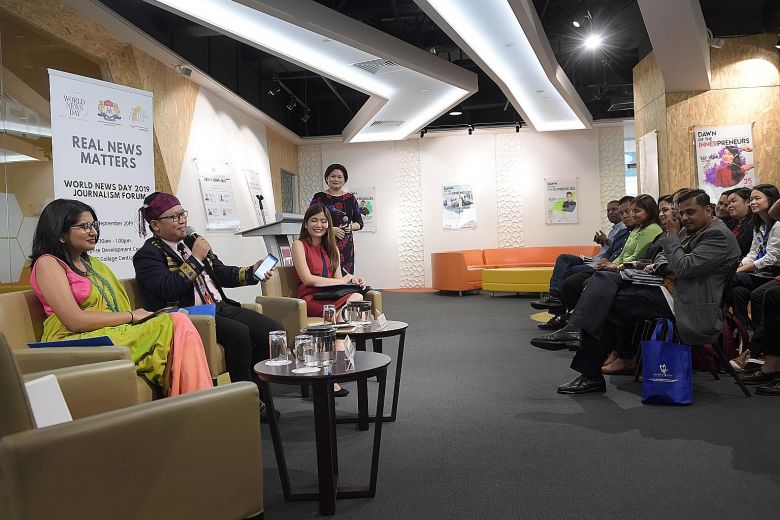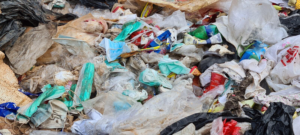One journalist spent her birthday at a morgue, watching as plastic bags filled with the limbs of victims in Sri Lanka’s bomb attacks on churches in April were brought in. It was so horrific, she could not report it.
Another witnessed the lifeless body of a youth, shot by Philippine police in the country’s war against drugs, transported to a hearse. He was only 17 – the same age as the journalist’s sister.
Faced with at times senseless and cruel violence, journalists who report from the front lines of conflict do some of the profession’s most important work, and some of its most exacting, and potentially lethal, as well.
Speaking on a panel at the Real News Matters forum yesterday, three participants from this year’s Asia Journalism Fellowship highlighted broadly the same crucial challenge in reporting conflict: getting accurate information.
Mr Maran Htoi Aung, editor of Myanmar’s Kachin Waves, shared the difficulties of covering the ongoing conflict in Kachin state between the country’s military and the Kachin ethnic armed group.
The United Nations and other groups have found several gross violations of human rights perpetrated by the military.
“It is very difficult to get information from all sides… Especially for an ethnic (minority) person, there is the danger of being arrested, and it is difficult to get anything from government officials, who are Burmese,” he said.
It is the same for GMA Network senior news correspondent Victoria Tulad covering Philippine President Rodrigo Duterte’s war on drugs. Her exclusive in August 2017 on 17-year-old Kian Loyd delos Santos, who was killed in Caloocan city, north of Manila, had differing accounts.
While the police said he had been firing a gun, closed-circuit television footage showed they had taken him to an alley and, according to eyewitnesses, shot him for suspected possession of drugs.
For Ms Kalani Kumarasinghe, features editor at Sri Lanka’s The Daily Mirror, the initial chaos after the Easter Sunday bombings was compounded by the government and military’s lack of response.
The media would later find out that the government had known about, but not acted on, information of the attacks for at least two weeks.
“Social media caused a lot of problems for us as well,” she said. At one point, there were even rumours that Muslims were using pills to sterilise Sinhalese people, which “spread like fire”.
And the effects of covering such violence up close takes a toll on one’s mental and emotional health, they told The Sunday Times.
Ms Kalani said she nearly broke down at one point: “When I was spending that day in the morgue, that was a time when I really questioned what I was doing.”
But they carry on.
“You can’t avoid getting traumatised, so you have to be strong, you have to move on,” said Ms Tulad. “We continue to hope that our stories can bring about change.”
In Ms Tulad’s case, her story did spark change. The public outcry it created eventually led to the cops who killed Kian being jailed.
In the end, the motivation for all three journalists was the same.
As Mr Htoi Aung put it: “Why am I still here? Because I think, I have to tell the truth.”




